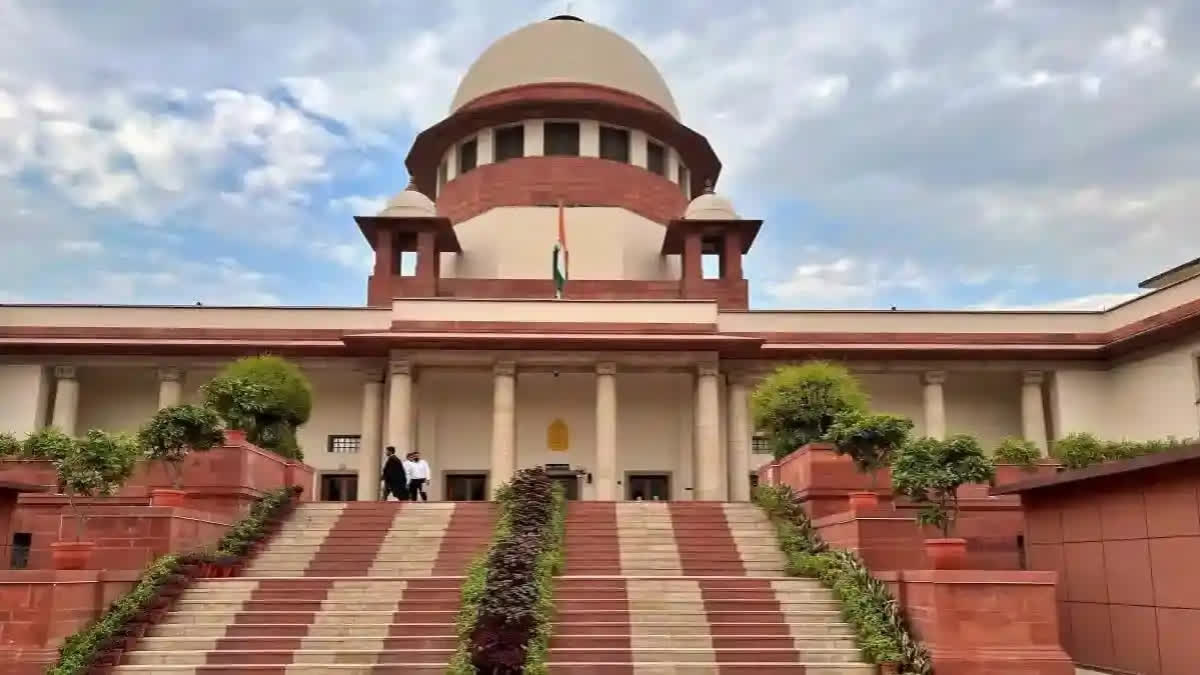New Delhi: The Supreme Court on Wednesday ended the ordeal of a 50-year-old man, enrolled in the Indian Army in October 1993 as Havaldar, who fought a battle with authorities for over 20 years against his wrongful discharge after he was misdiagnosed with AIDS, which resulted in imperiling consequences for him.
The apex court minced no words in criticizing the Army’s policy, which reflects the systemic discriminatory practice and predisposition, treating HIV as aggravation of STD and AIDS as "self-inflicted". The petitioner, as an alternative relief, has consistently prayed for disability pension, but it was denied on the ground that the disease is "self-inflicted".
A bench Justices Sanjiv Khanna and Dipankar Datta said: “In view of the extreme mental agony thus undergone by the appellant, in not only facing the apathetic attitude of the respondents (Army authorities) but in facing the concomitant social stigma and the looming large death scare that accompanied such a discharge from the armed forces, we deem it fit to award a lump sum compensation of Rs.50,00,000/-towards compensation on account of wrongful termination of services”. The court also ordered for payment of full pension as if he had continued in service as Havaldar.
The bench said even going by the respondents' own policy, the appellant could not be said to be suffering from AIDS since, in flagrant defiance of the policy assessment, the appellant is reportedly still alive and suffering from no serious ailment.
Justice Datta, who authored the judgment on behalf of the bench, said it is no secret that despite the enactment of the Human Immunodeficiency Virus and Acquired Immune Deficiency Syndrome (Prevention and Control) Act, 2017, and the slew of awareness measures taken by Governments in recent times, the stigma and discrimination which lamentably accompanies an HIV+ve diagnosis is still an illness that afflicts the minds of society today. “The apathetic attitude of the respondents to the appellant’s plight is evident in the repeated submission that has been made before all fora, i.e., the appellant’s case had been re-examined several times and thus did not merit another look”, said justice Datta.
The bench noted that he was discharged on December 26, 2001 at the prime age of 27, after eight years and 58 days of service. The bench said the petitioner was robbed of the opportunity of further serving the nation for many more years on account of the most unfortunate turn of events.
The bench said respondents’ submissions, as elaborate as they may be, in defence of the AIDS diagnosis which was used to discharge the appellant from service, are rendered unworthy of acceptance on the face of his existence today, as an asymptomatic HIV+ve individual without the intervention of any anti-retroviral therapy.
The bench said examination of the respondents’ policy reveals that though AIDS was always deemed to be a self-inflicted disease, there was still a provision for conferring disability status to those afflicted with the same. “Yet, time and again, we find the respondents here have mechanically denied the appellant’s request for disability status in a most arbitrary and unreasonable manner”, said the bench.
The bench said it is pertinent to note that in yet another instance of the deep-rooted bias against individuals diagnosed as HIV+ve, the notice allows for sheltered appointments to those diagnosed with such a condition, while in the same breath stating that the provision of such sheltered appointments is an unlikely possibility.
"By misdiagnosing the appellant with AIDS, the respondents indubitably subjected the appellant to further misery in not only combating social stigma against a disease which the appellant never suffered from but also from the dreadful thought of an imminent death resulting from an incurable disease," the bench said.
The bench said the appellant, now 50 years of age, had suffered psychological, financial and physical trauma, and the fact that his reinstatement in service was not an available option now.
The bench, after examining Army policy, said that it reveals that in terms of Para 6A, a person who has been diagnosed as HIV+ve was expected to develop AIDS within 6-8 years, and thereafter, have a limited lifespan of only 1-2 years. "We cannot help but record reservation as the policy reflects the systemic discriminatory practice and predisposition treating HIV as aggravation of STD and AIDS is self-inflicted," the bench said.
Read More
World Aids Day 2023: Cause, symptoms, HIV/AIDS treatment, prevention & cure


